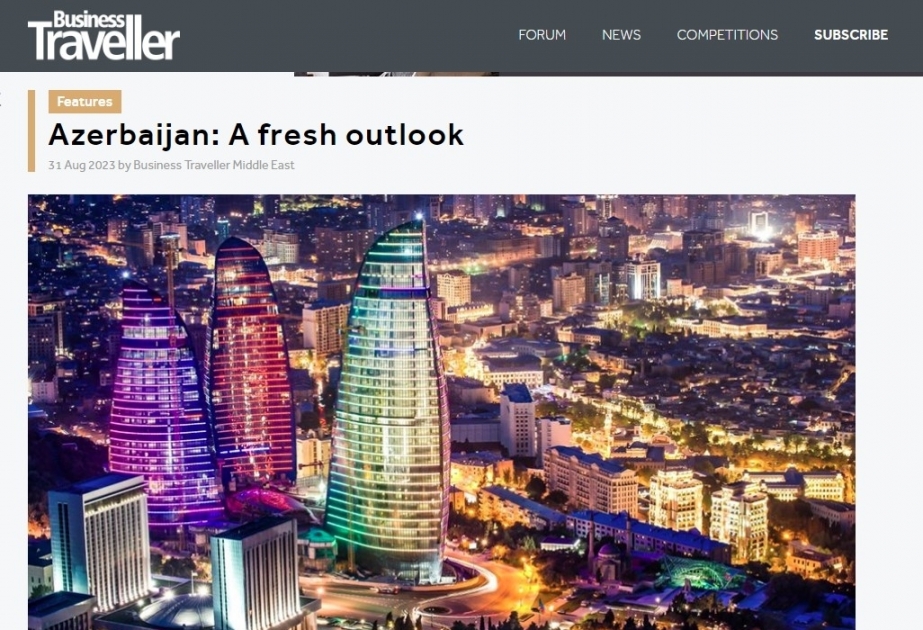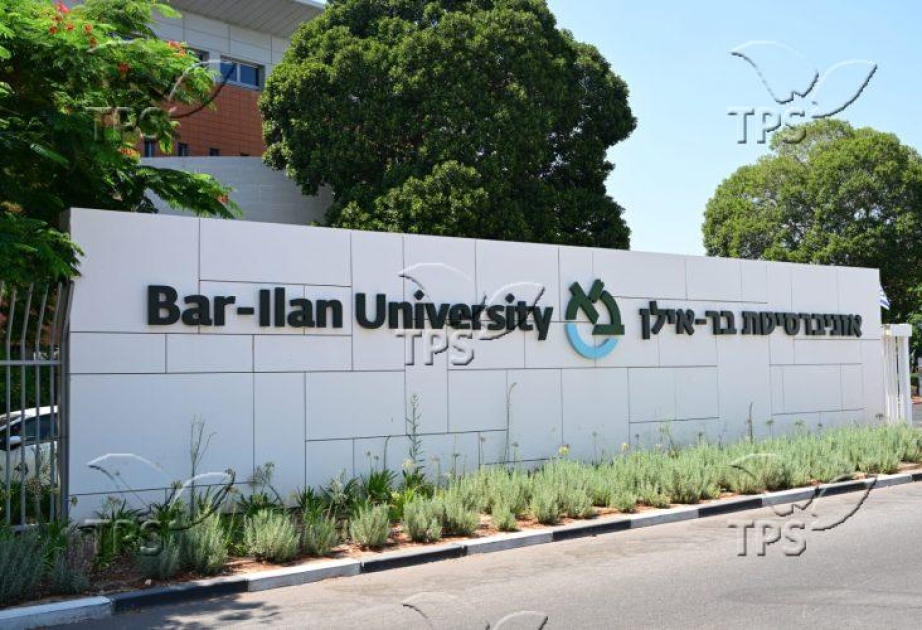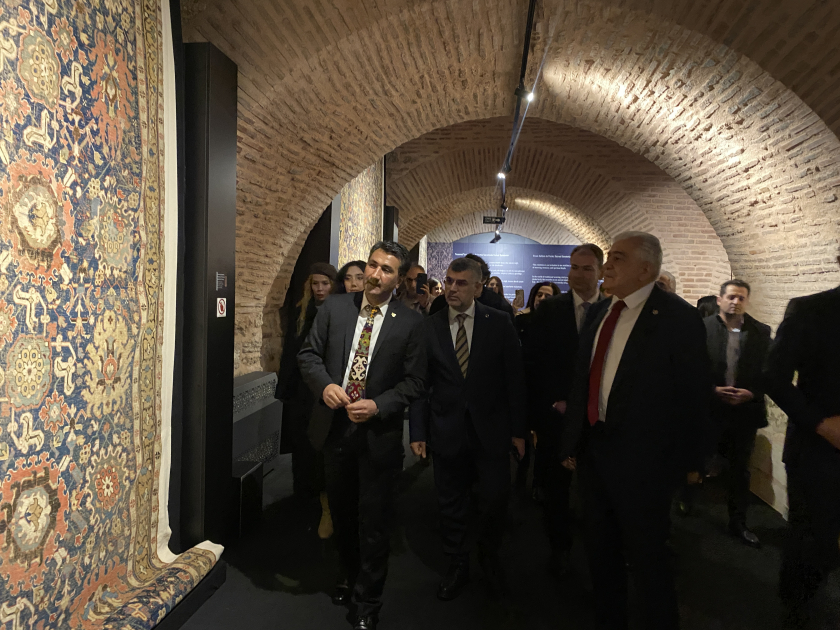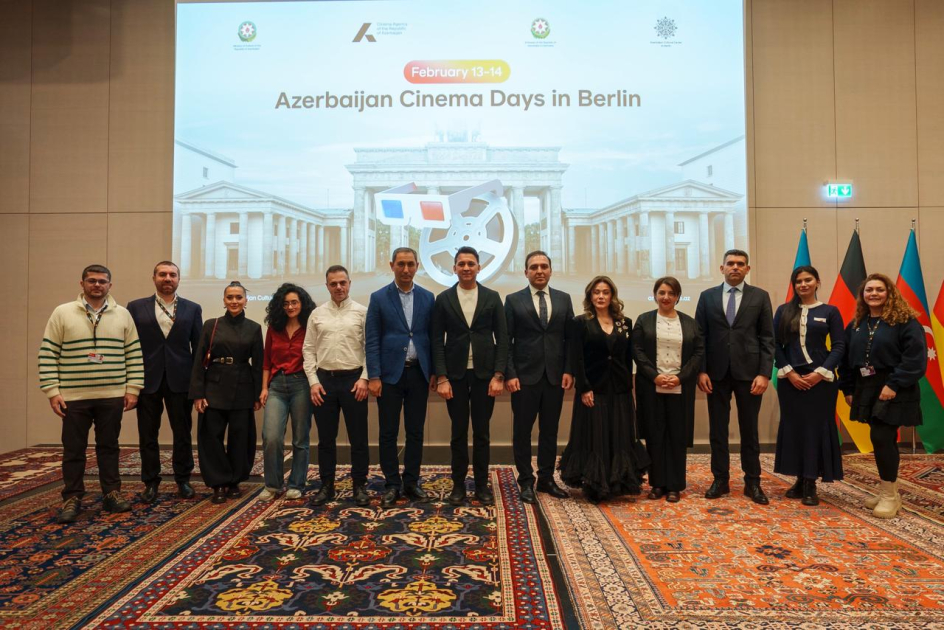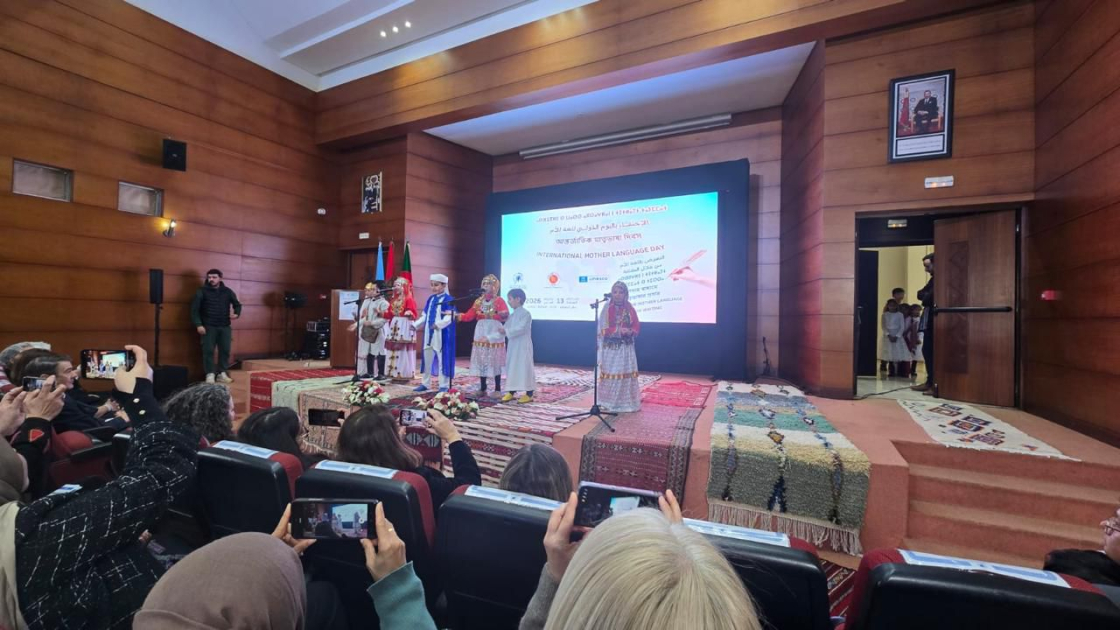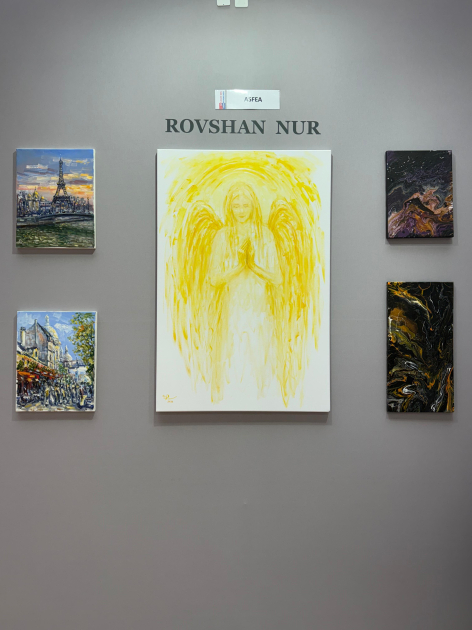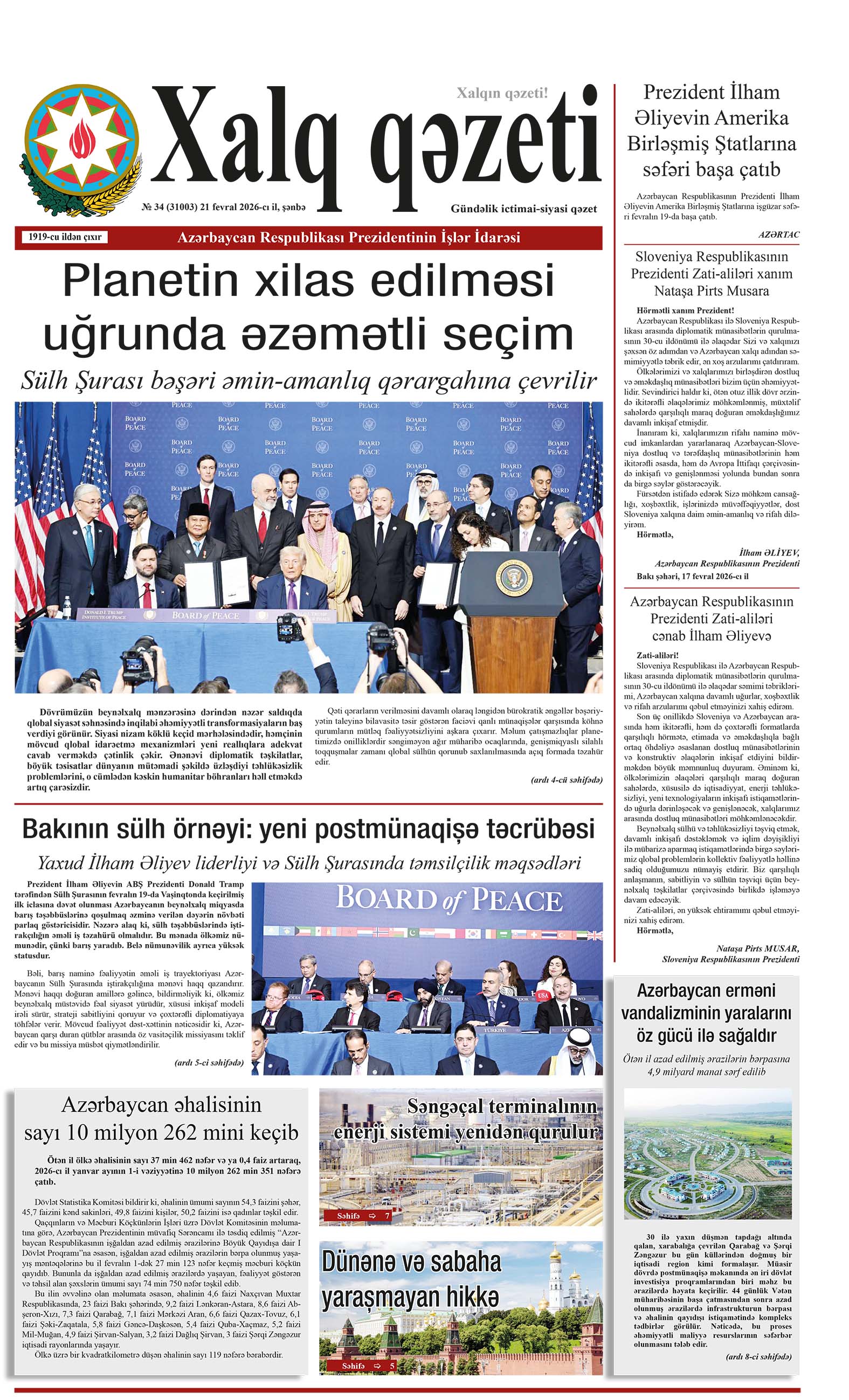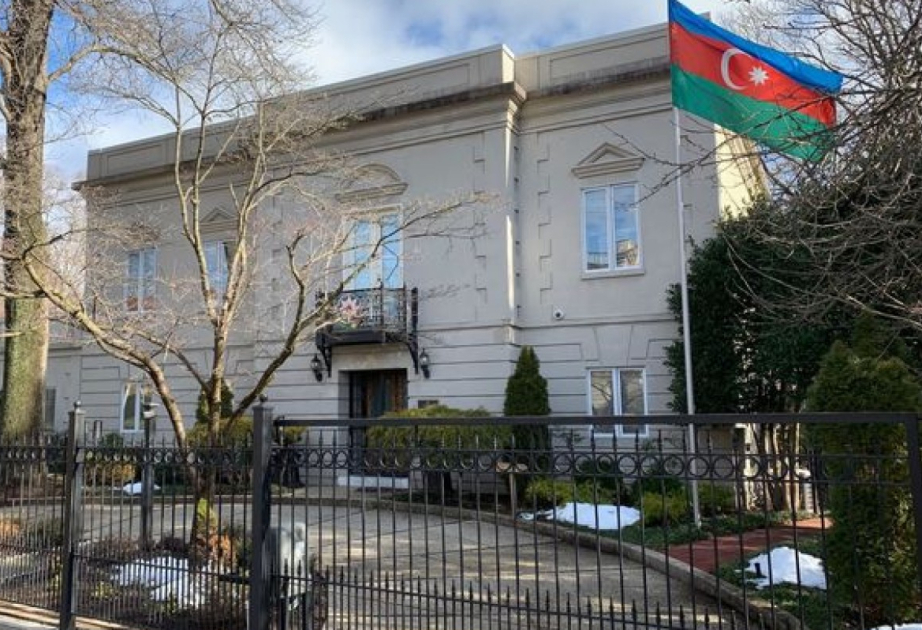Business Traveller has published an article highlighting tourism potential of Azerbaijan.
Headlined “Azerbaijan: A fresh outlook”, the article says: “Azerbaijan is emerging as the hottest new short-haul destination for GCC travellers. Whether it’s a long weekend in the capital Baku, wandering the Old City streets and soaking up its history and culture, or heading to the mountains for a ski trip, there is something for everyone in the Caucasus country less than a three-hour flight from the UAE. Oil and gas-rich Azerbaijan has seen a rapid rise in the last decade, starting in 2012 when Baku was the host city of the Eurovision Song Contest, catapulting this little-known former Soviet state onto the world stage.
Today, visitors are relishing the mix of old meets new, east meets west, in a country where outdoor adventure is as much on the menu as is luxury dining. The architecture is a reflection of the country’s colourful past, with Art Nouveau buildings reflecting the European influences while grand Soviet structures nod to another era of the country’s recent past. Glass structures such as the Flame Towers find themselves in the same frame as an old mosque and the natural greenery which dots the city’s landscape, making for a fascinating journey into the country’s culture. Azerbaijan as a country feels far closer to Europe in its overall feel than it does the Middle East, and locals are proud to share stories of the country’s diverse communities.
Nestled on the Caspian Sea, Baku is a vibrant, modern city, with a deep-rooted ancient history. From designer boutiques to museums and gastronomic delicacies, there’s much to discover in Baku. Its Old City with its winding cobbled streets, museums and old forts offer a taste of the country’s heritage, while further away, structures such as Zaha Hadid’s stunning Heydar Aliyev Center has a contemporary flowing design that is a tribute to Baku being known as the ‘city of winds’. Hosting Formula One races until at least 2026, the sport has also helped showcase the capital in all its glory. Museums such as Villa Petrolea chronicles the key role that the discovery of oil made to the economy, raising it to the world stage among the world’s energy-rich countries.
The Old City has a growing range of boutique hotels while the big brands have definitely made their mark in the city. Four Seasons Hotel Baku is a beautiful period style property modelled on the historic structures in the area. The hotel offers a luxurious urban retreat, with views over the Caspian Sea and nearby architectural landmarks including the Deniz Mall, the lotus flower structure on the waterfront. For the business traveller, The Ritz-Carlton, Baku opened its latest property in December. Situated by the Heydar Aliyev Center and Baku Convention Center, it is a prime location for conferences and events, and is a short drive from the city centre.
With Azerbaijan’s key position on the old Silk Road, it’s easy to see how some of the country’s most famous foods have made their way around the region. From dolma and plov to kebabs, Azerbaijan has truly made its mark on the culinary world. For foodies, Baku offers the perfect place to explore authentic Caucasian cuisine. There are so many dining destinations here where food becomes a cultural experience. Mugam Club is a 12th century former ‘caravansarai’ or guest house for travellers on the Silk Road, and now offers a musical experience blending the traditional mugham music and exquisite cuisine.
Shirvanshah Museum Restaurant is another gem offering the mugham experience, set in a historic 19th-century building. Once a hammam, each room is themed to tell the story of Azerbaijan’s history. Both restaurants offer private dining rooms for small or large groups, in a cosy, intimate setting, and are perfect for family gatherings or business events.
A beautiful spot to watch sunset and take in the sweeping city views is Highland Park, while Manzara is an upmarket dining destination with great local food. Another must-visit is Chayki, a waterfront restaurant with indoor and outdoor dining areas and which is also a great spot to bask in the sun during the warmer months. A trip to Baku would not be complete without a taste of the famous Baku Caviar. The caviar is produced in the Azerbaijan Fish Farm, a sustainable breeding project which is working to replenish the endangered Sturgeon population in the Caspian Sea.
A trip to Azerbaijan is not complete without a taste of what’s beyond its capital city. From magical mud volcanoes in Gobustan to mountainous terrain across Azerbaijan, the country’s natural beauty lies beyond its urban centre.
Driving around the country allows visitors to enjoy a true taste of Azerbaijan’s beauty, which boasts of nine microclimates – a major factor why food grown by the local farmers tastes so fresh. A driver-guide is a must though. Not only is it cheaper than hiring a car, but the experience of understanding the country will be transformed with the help of a trained guide and translator.
For day trips from the city, mud volcanoes and ancient rock carvings set in the Gobustan National Park, are a must-see to dive into Azerbaijan’s history and natural wonders. Meysari winery in Shamakhi is also a fun day trip to see the revival of the country’s ancient wine-making tradition, a taste of France just 90 minutes north of the capital, offering amazing food within a traditional rural setting.
It’s impossible to see the whole country in one trip but a journey down south takes visitors into a totally different terrain from the more barren, desert-like terrain around Baku, with lush green forests, lakes and mountains to explore. The region is famous for its tea plantations but is home to a plethora of farms with everything from rice to lemons. We stayed at Lankaran Springs Wellness Resort, one of several hotels opening in the region. With our guide, we drove to the nearby village of Sim, off-roading up the mountains for a traditional plov lunch with a local family, part of a government project between the State Tourism Agency, Public Employment Agency, and Small and Medium Business Development Agency to showcase the country’s hidden gems.
Around 200 guest houses have been supported for upgrades to encourage tourism into the rural areas, boosting the local economy and highlighting parts of the country that would otherwise not be on a tourist’s radar. This is where having a guide is key, as they help translate and transform the experience as visitors chat with locals over traditional tea and jam.
Hiking to the Sim waterfall was an easy hike. It’s one of the many waterfalls dotted around the country, and Azerbaijan has several hiking trails of varying difficulty levels spread across from the north to the south of the country. The rural areas of the country offer a welcome contrast to its urban areas, with glimpses of the farmers on their horses and carts, cows roaming in the streets and an overall slower pace of life.
Dr Thani bin Ahmed Al Zeyoudi, UAE’s Minister of State for Foreign Trade, recently spoke of the growing UAE-Azerbaijan economic and trade relations, the value of non-oil trade increasing by over three times during the past five years, totalling more than Dhs10.2 billion. It rose 270 per cent from Dhs974.2 million in 2018 to Dhs3.6 billion in 2022, an increase of 46 per cent over 2021.
Trade between the two countries in 2022 was distributed between Dhs32.6 million in imports, Dhs351.9 million in exports, and Dhs3.5 billion in re-exports. Al Zeyoudi said Azerbaijan has become a gateway to Eastern Europe and many markets in the region. There are many sectors witnessing cooperation between the two countries, including real estate, food security and logistics. Also critical is the diversification into renewable energy. Masdar has become a key partner for the UAE-Azerbaijan project, says Sanan Nasibli, chief representative for Azerbaijan at the Baku office of Dubai Chambers. This has been supported by the decision to create a conducive legal framework between the two countries, including off-take arrangements for international energy investors such as Masdar, with a focus on renewables and reducing the carbon footprint.
According to the Dubai Chambers, there has been an average annual increase of 24 per cent in UAE exports to Azerbaijan with traditional categories such as mineral fuels, machinery, plastics, and tobacco products, as well as new leading categories such as essential oils, chemicals, and paper products.
Tourism is undoubtedly boosting the expansion of bilateral ties, which has seen the launch of the visa-on-arrival facility between the UAE and Azerbaijan. These visa changes, coupled with the expansion of flights, have significantly impacted the sector, says Nasibli. At present, multiple daily flights operate from the UAE via Azerbaijan Airlines, flydubai, Air Arabia and Wizz Air. Multiple regional airlines also have direct flights into Baku including Turkish Airlines, Gulf Air, Israir and flynas, helping put Azerbaijan in the league of the top short-haul destinations for the region’s travellers. Flydubai now offers a double-daily service since it launched operations to Baku in November 2009, a route which doubles to a four-times daily service from June to September. The airline has already seen a 14 per cent increase in capacity to Baku in the first quarter of 2023 compared to the same period of 2022, reportedly with a strong uptake for business class on the route.
Around 1.6 million foreign visitors travelled to Azerbaijan last year according to government figures, and in 2026, the country hopes to increase that number to four million. Inbound travel to Azerbaijan already started the year on a high, and looks set to improve as temperatures soar in the GCC and residents look to escape to cooler climes. January to April has seen a 58 per cent increase, with 523,305 visitors, up from 330,679 in the same period of 2022, according to Azerbaijan’s tourism authority.”


